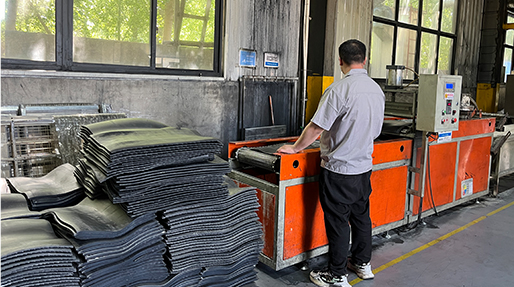High Pressure Fuel Line Systems and Their Importance in Modern Engines
Oct . 21, 2024 17:39 Back to list
High Pressure Fuel Line Systems and Their Importance in Modern Engines
High Pressure Fuel Lines An Essential Component in Modern Engines
High pressure fuel lines play a critical role in the functioning of modern internal combustion engines, particularly in diesel engines and high-performance gasoline engines. These fuel lines are designed to transport fuel at elevated pressures, ensuring efficient fuel delivery to the engine’s combustion chamber. Understanding the importance, design, function, and maintenance of high pressure fuel lines can enhance engine performance and longevity.
The Importance of High Pressure Fuel Lines
In modern automotive engineering, fuel delivery systems have evolved significantly. High pressure fuel lines are essential for delivering fuel from the fuel pump to the fuel injectors at the appropriate pressure. For diesel engines, this pressure can range between 500 to 30,000 psi, while high-performance gasoline engines may operate at around 60 to 100 psi. The high pressures are necessary to ensure that the fuel atomizes correctly when injected into the combustion chamber, leading to a more efficient burn and better engine performance.
Moreover, high pressure fuel lines help in optimizing fuel efficiency and reducing emissions. With precise fuel delivery, modern engines can achieve better fuel economy and fewer unburned hydrocarbons, which are crucial for meeting increasingly stringent emissions standards.
Design and Materials Used
High pressure fuel lines must be designed to withstand extreme conditions, including high pressure, temperature variations, and exposure to various chemical substances. They are typically made from high-strength materials such as stainless steel or reinforced rubber. These materials provide the durability and flexibility needed to accommodate engine vibrations while preventing leaks.
The design of these fuel lines also incorporates robust fittings and connectors to ensure secure connections at every junction. Incorporating features such as vibration dampeners can further enhance their reliability, as vibrations can lead to premature wear or failures in the fuel delivery system.
high pressure fuel line

Functionality and Operation
High pressure fuel lines operate as a direct link between the fuel pump and the fuel injectors. Once the fuel pump draws fuel from the tank, it pressurizes it and sends it through the fuel lines. The high-pressure fuel then reaches the injectors, which atomize the fuel into a fine mist before injecting it into the engine’s combustion chambers.
The timing of the fuel injection is crucial. Advanced engine control units (ECUs) are programmed to determine the optimal injection timing and quantity of fuel based on various parameters, including engine load, throttle position, and temperature. This precise control ensures that the engine operates efficiently across different conditions, maximizing power output while minimizing fuel consumption.
Maintenance and Inspection
To ensure the reliability and safety of high pressure fuel lines, regular inspection and maintenance are critical. Common issues include wear and tear due to exposure to heat and engine vibrations, potential leaks, and deterioration of materials over time. Visual inspections can often reveal signs of wear, such as cracks, fraying, or fuel stains around the fittings.
It is advisable to follow the manufacturer's recommended maintenance schedule, which may include replacing components of the fuel delivery system at specific intervals. If a vehicle starts experiencing performance issues, such as poor fuel economy, rough idling, or difficulty starting, the fuel lines should be among the first components checked.
Conclusion
High pressure fuel lines are an indispensable part of modern fuel delivery systems that significantly enhance engine efficiency and performance. Their robust design caters to the demanding environment of an engine, ensuring the safe and effective transportation of fuel. Regular maintenance and prompt attention to any issues can prolong the life of these components, ultimately contributing to the overall health and efficiency of the engine. Understanding the role of high pressure fuel lines not only empowers vehicle owners to make informed decisions about maintenance but also deepens the appreciation for the intricate workings of modern engines.
